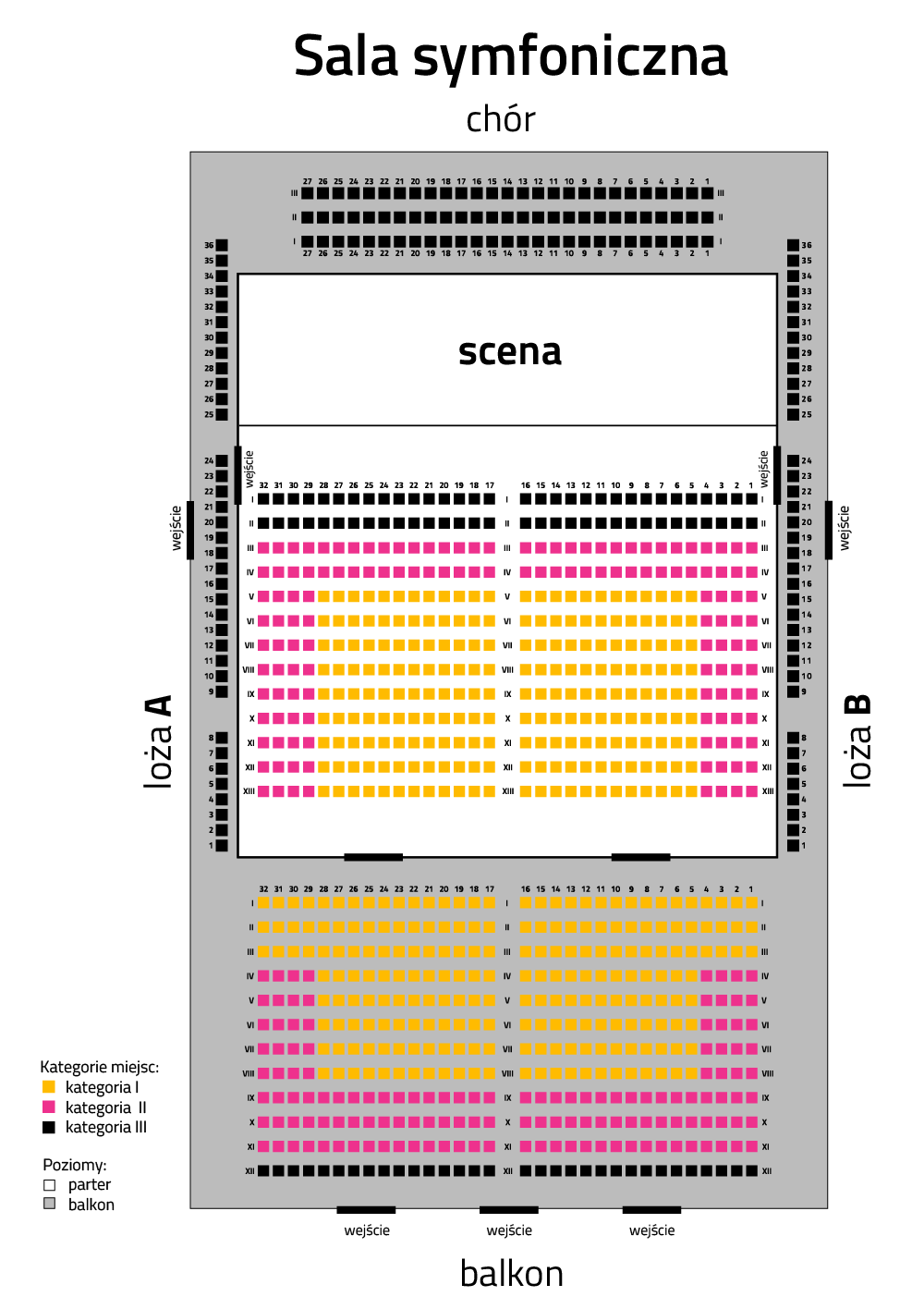The greatest symphonic work. The phenomenon of this composition is caused not only because of the great music, but also the moral values in Friedrich Schiller's lyrics sung by the choir in the grand finale. Symphony No. 9 by Ludwig van Beethoven is one of the most important musical documents of the Enlightenment – is it still valid today?
When Beethoven was working on the Ninth Symphony, he was almost completely deaf. All of the Symphony scores, as well as all the other songs written at that time, were created only in his imagination (he was not able to hear the final effect). However, the loss of hearing didn’t hinder the composer’s work. Of course, as it was customary of him, he endlessly reworked his compositions, but that had nothing to do with deafness. Moreover, between 1822-1824, when this monumental work was created, he was extremely creative. He was also working on a great mass (Missa solemnis), two sonatas and a dozen other compositions. The idea for this symphony was so revolutionary that it overshadowed everything that had so far been invented in music. In fact, the idea of composing a great work to Friedrich Schiller's text had been occupying the maestro's head for many years. For the first time we learn about this from a letter from a law professor in Bonn who wrote that Beethoven would like to write a composition to Schiller's text stanza. Then we learn about this several times from the composer's letters (1798,1812). But it was as late as in 1822 that its time had come.
The Symphony consists of four parts and although it is difficult to conclude that they have a specific program, the dramaturgical plan looks like this: Part I – Fighting, II – Fun, III – Contemplation, IV – Great Paean, the voices of soloists and choir appear who sing the text of Schiller's poem. Apotheosis, triumph ("All men will be brothers"). Let us note that the way to victory is through hard work, struggle, and when we pass all our trials bravely, a reward will be granted. Such a philosophy had accompanied Beethoven throughout his life. That was why he was fascinated with Napoleon at some point. This is why he did not respect the aristocracy and despised feudalism no matter how enlightened it was. Noble birth did not grant a patent for goodness, nobility and wisdom according to Beethoven. Is not this the message that the Viennese classics shared, while the stiff corset of the feudal system forbade them to speak out loud? "Mozart's Magic Flute", Beethoven's Ninth Symphony – only here the composers cast a courageous challenge to the whole epoch.
Conservative Vienna was so bewildered by Beethoven, often not understanding his work, that now when the score of "the Ninth" was finished, the artist was not eager to have it premiered in the capital of the Monarchy. However, when news of the new symphony broke out in the city, Beethoven was sent an incredible letter from his fans and friends in which he was assured of a great respect for his creation. As a result, on May 7, 1824, the premiere took place at the Kärtnertor Theater (today it no longer exists). The reports from that evening confirm that this was a great success. Beethoven was on stage, but because of deafness he did not conduct. However, he observed at the orchestra. When they finished playing, he could not hear the frenetic ovation that the Viennese citizens awarded his music with. Someone approached the composer and gestured to him to turn around and see what he could not hear.
Can the message of the Symphony be up to date? Let us reply with the reflection by Czesław Miłosz, who considered the impression of Beethoven’s music as liberating, as "elevating beyond what we are."
------------------------------
Mikołaj Rykowski PhD
Musicologist and clarinetist, doctorate, and associate at the Department Music Theory at the Paderewski Academy of Music in Poznań. Author of a book and numerous articles devoted to the phenomenon of Harmoniemusik – the 18th-century practice of brass bands. Co-author of the scripts "Speaking concerts" and author of the spoken introductions to philharmonic concerts in Szczecin, Poznań, Bydgoszcz and Łódź.

